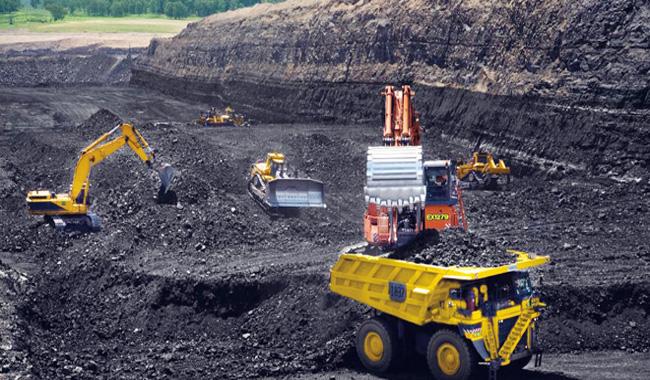Author Recent Posts Mahnoor Sayab Latest posts by Mahnoor Sayab (see all) Cyber Warfare : A New Warfront Between India and Pakistan – June 17, 2025 Understanding legal dimensions of Indus Water Treaty – June 17, 2025 The Impact Of The 18th Amendment On Mining Governance In Pakistan – June 11, 2025
The 18th amendment to the constitution of Pakistan, 1973 has significantly impacted the mining governance in Pakistan. It is one of the most important amendments to the constitution of Pakistan as it altered about one-third of the constitution. One of the key provisions of the amendment was devolution of power from the Federation to the Provinces . This power devolution primarily shifted the control and responsibilities from the Federation to the Provinces. Consequently, highly impacted the mining governance by giving the control of minerals to their respective Provinces either exclusive or shared with the Federal Government .
The mineral industry of Pakistan has great potential to contribute to the country’s GDP, as Pakistan is abundant in mineral resources. Pakistan has deposits of several valuable minerals, including gold, coal, copper, chromite, bauxite, rock salt, natural gas, etc . Balochistan has the largest shares of mineral resources among all the provinces, Khyber Pakhtun Khwa is rich in gemstones while Sindh is known for its coal deposits. However, the mining sector still requires considerable improvement, particularly in the areas of exploration, extraction, value addition and mining governance.
The 18th amendment impacted the mining governance due to the change in power structure. One of the major objectives of this amendment was to empower provinces . This was achieved by abolishing concurrent legislative list which previously allowed both the Federal Government and the Provincial governments to legislate on the same subjects. With the effect of 18th amendment, , the subjects which didnot fall under Federal legislative list were brought under exclusive jurisdiction of provinces . As a result, the Provincial Governments have been empowered to regulate their own mineral resources and to design and execute their mineral policies. Consequently, Khyber Pakhtun Khwa has taken initiative in 2014 by designing it’s first mineral policy.
After the abolition of concurrent legislative list, some of the subjects were transferred to the Part II of Federal Legislative List. The subjects under Part II of the Federal Legislative List were to be regulated jointly by the Federal Government and Provincial Governments through the Council of Common Interests (CCI) . While the rest of the subjects from the concurrent legislative list were fully devolved to the provinces. Mineral Oil and Natural gas were also transferred to Part II of Federal Legislative List to be regulated by Federal and Provincial Governments together.
According to article 172 (3) of the Constitution of Pakistan (post-amendment), the ownership of mineral oil and natural gas vests jointly and equally in the federal government and the provinces in which such resources are located, including the adjacent waters thereto. While Articles 161 (1) (a) and (b) confirm that royalties and excise duties on natural gas and crude oil belong to the provinces, with the federal government only acting as a collection agent (retaining a 2% fee). The shared and equal ownership of mineral oil and natural gas by federation and provinces is the most fundamental impact of 18th amendment along with the allocation of royalties and excise duties to the provinces .
The 18th amendment profoundly influenced the provinces prompting them to develop their own mineral policies and regulations . As a result , provinces developed their own mineral policies and regulations to better manage their mineral resources. For example: Balochistan mines and minerals development policy 2019 , Khyber pakhtun khwa mining concession rules 2005 , Sindh mining concession rules 2002 and the very recently introduced Khyber pakhtun khwa mines and minerals bill 2025 which is still under debate.
However, the lack of coordination between the federal and provincial governments often results in delays and disputes. Provinces lack the technical expertise and institutional capacity to execute these policies productively. This implies that the policies exist but their implementation remains a challenge. The lack of uniformity in mining rules and laws across provinces is an issue that hinders foreign investment as investors seek a more stable and consistent regulatory environment with government and provinces on the same page.
To address those challenges, the federal and provincial governments should collaborate on drafting a unified mining policy that guarantees consistency without compromising provincial autonomy. Capacity building in this regard , infrastructure development, convenient licensing processes , attracting foreign investment by ensuring transparency and accountability with the joint efforts of federal and provincial governments is necessary for the better future of mineral industry. Comprehensive research should be conducted and implemented to improve the mining sector.
The federal government should honestly share the revenue with the provincial governments according to the article 161. While the provincial governments should fairly use a huge part of the revenue generated by this sector in expanding mineral exploration especially natural gas and oil and in producing various mineral-based products. While hopes remain high for the enhancement of this sector, meaningful progress seems unlikely without effective and coordinated mining governance, clear regulatory frameworks, and collaboration between federal and provincial authorities.
- Cyber Warfare : A New Warfront Between India and Pakistan - June 17, 2025
- Understanding legal dimensions of Indus Water Treaty - June 17, 2025
- The Impact Of The 18th Amendment On Mining Governance In Pakistan - June 11, 2025





















Leave a Comment
Your email address will not be published. Required fields are marked with *